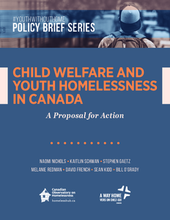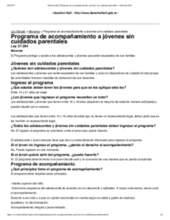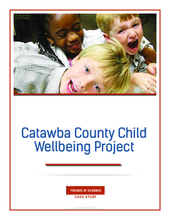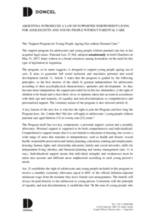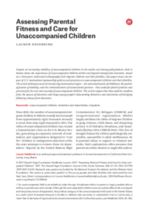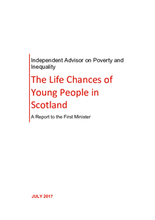Displaying 741 - 750 of 992
This book reviews changes in policy and practices that affected the generation of young people who grew up in state care in China in the last 20 years.
This article explores young people's experiences in the transition to adulthood from child welfare services and how Honneth's theory of recognition can be useful as an analytical tool to help us understand these experiences.
A recent Canadian study on youth homelessness revealed that youth experiencing homelessness are 193 times more likely to report interactions with the child welfare system. This policy brief offers a snapshot of the situation for homeless youth with experience in care, an analysis of the structures and systems leaving these children behind, and recommendations for policy and practice.
Este recurso describe Ley 27.364 de Argentina, Programa de acompañamiento a jóvenes sin cuidados parentales.
This report is a case study of the Child Wellbeing Project, which sought to address the reduction of services to families post-care compared to available in-care services to prevent foster care re-entry, ensure permanence, and improve long-term outcomes for children.
This document describes the Support Program for Young People Ageing Out without Parental Care, Argentine National Law 27.364, adopted unanimously by The Senate and Chamber of Deputies of Argentina on May 31, 2017.
This study investigated the connection between past child protective services involvement and type of exit from care for youth in probation-supervised foster care.
Based on a three-year, multi-sited ethnography with unaccompanied migrant children and their families, this paper investigates how U.S. institutional policies of immigration detention and family reunification impact migrant children and their families.
This country care review includes the care-related Concluding Observations adopted by the Committee on the Rights of the Child during the seventy-fifth session (15 May 2017 - 2 Jun 2017) of the Convention on the Rights of the Child.
This report offers 18 recommendations across the key themes of employment, housing and mental health, aimed at improving outcomes for young people from less advantaged backgrounds in Scotland.

